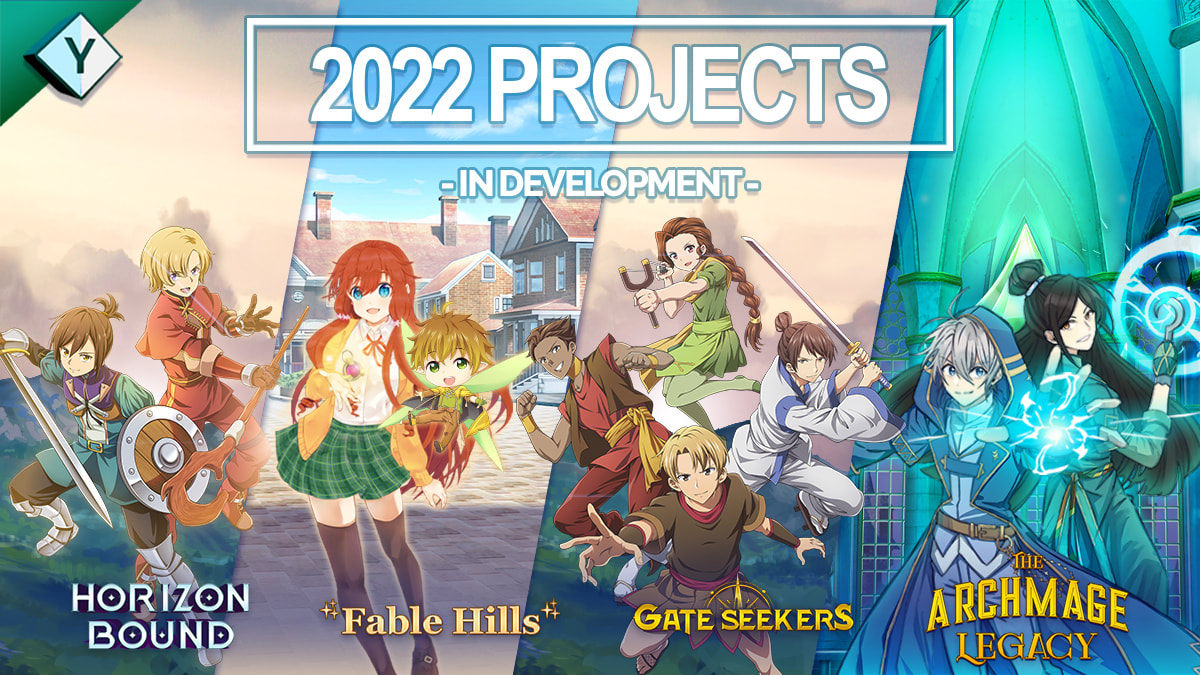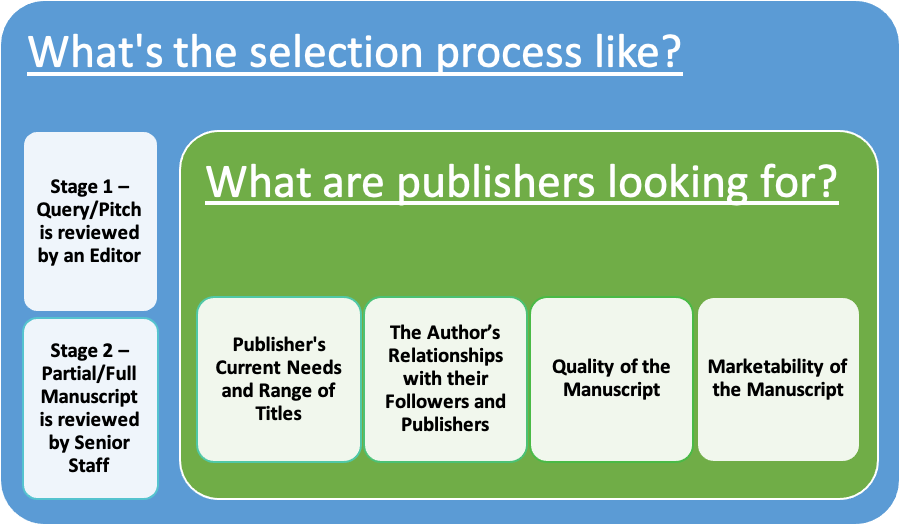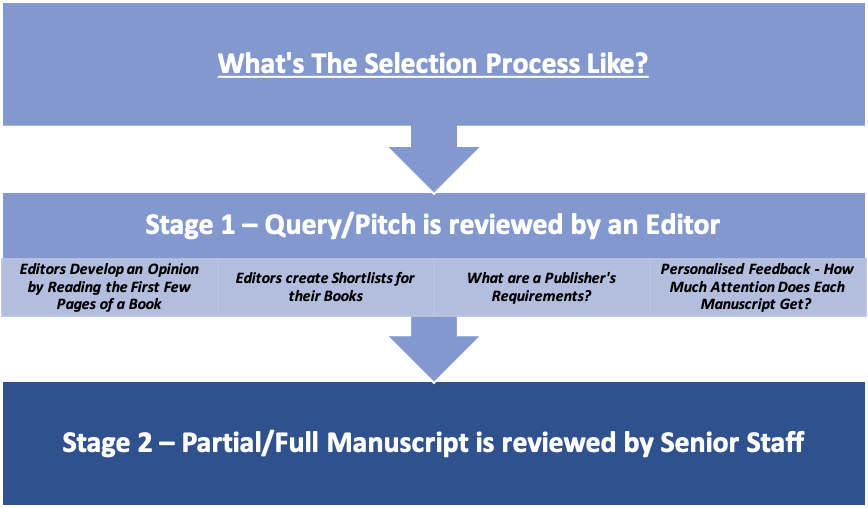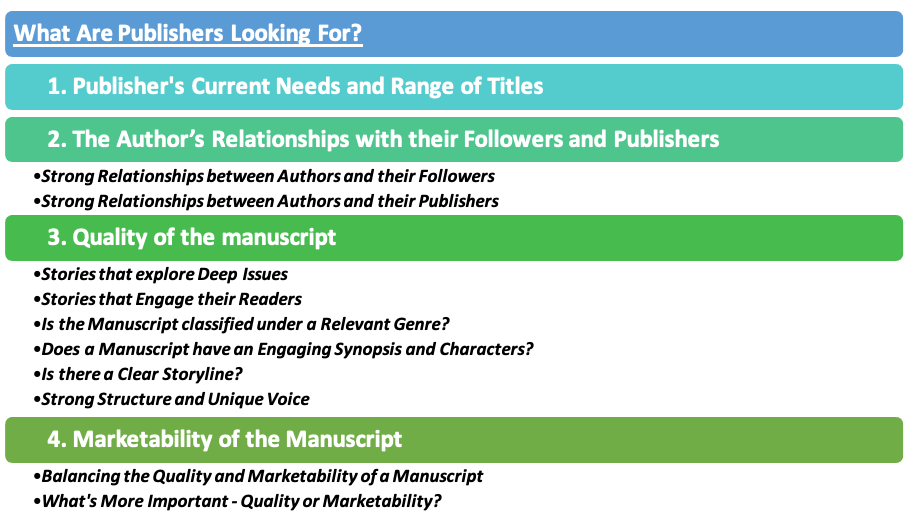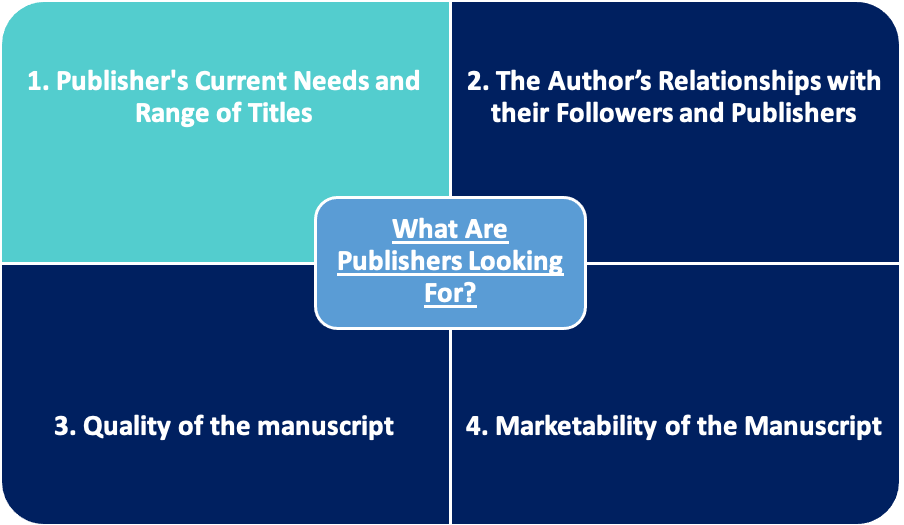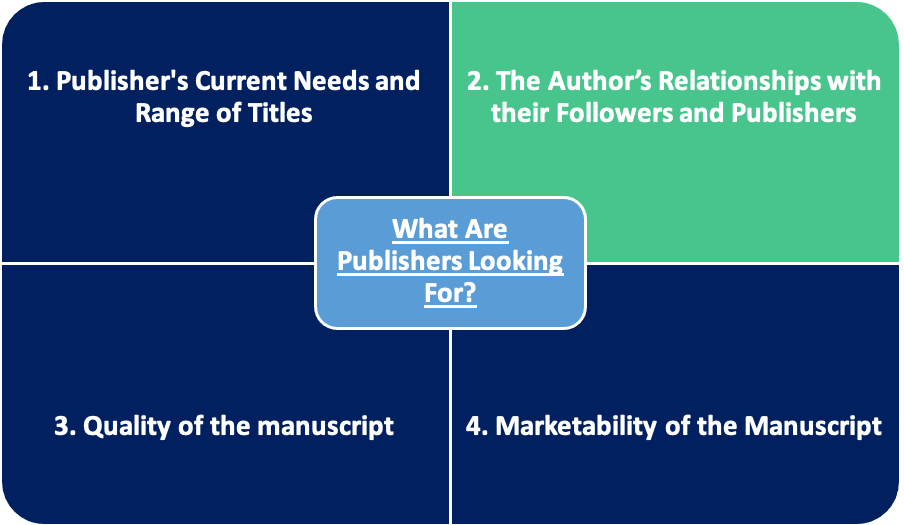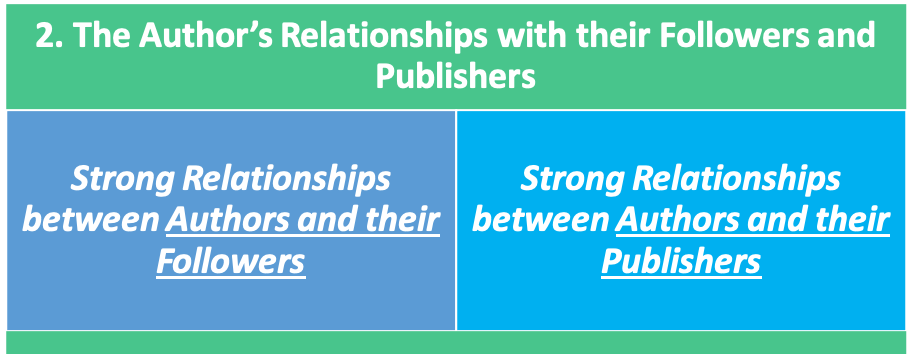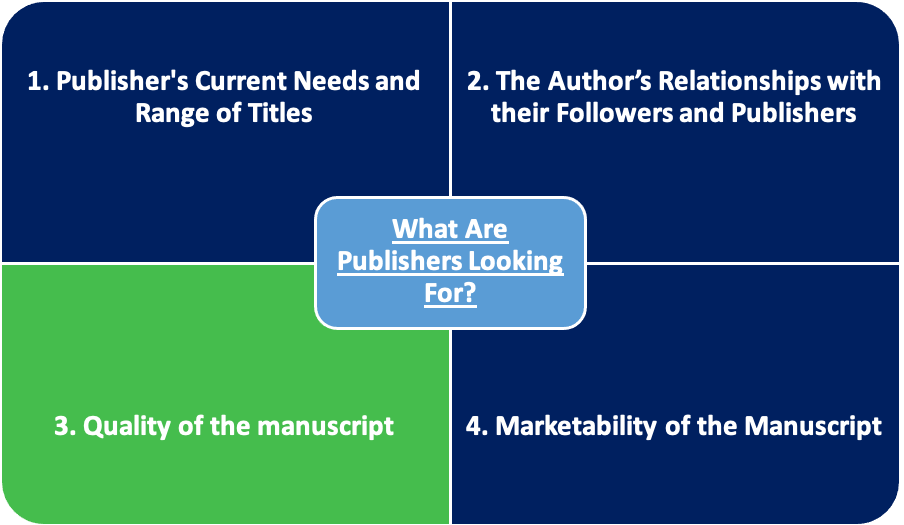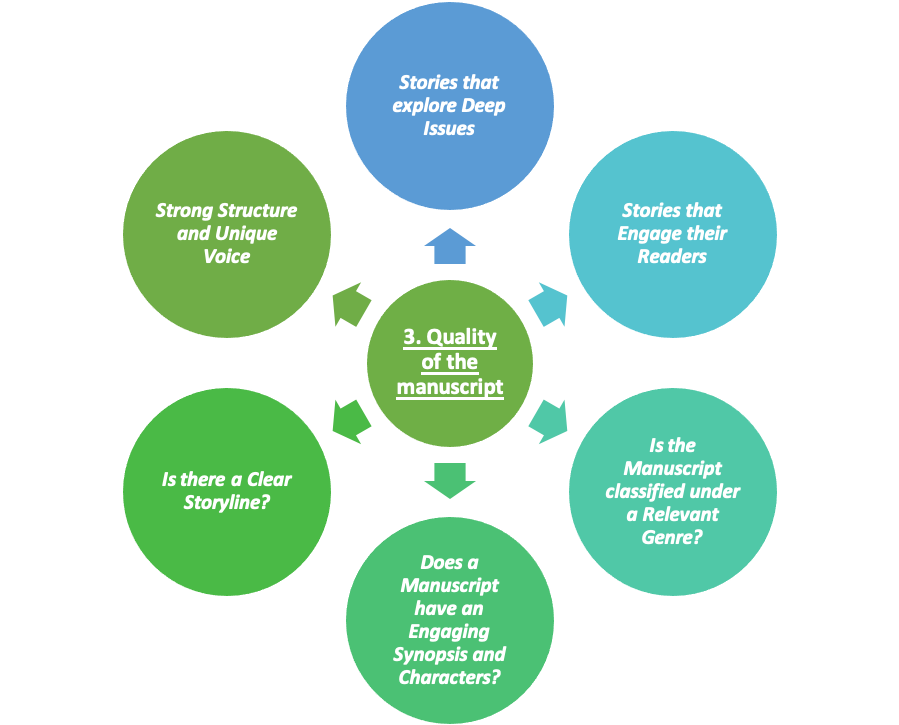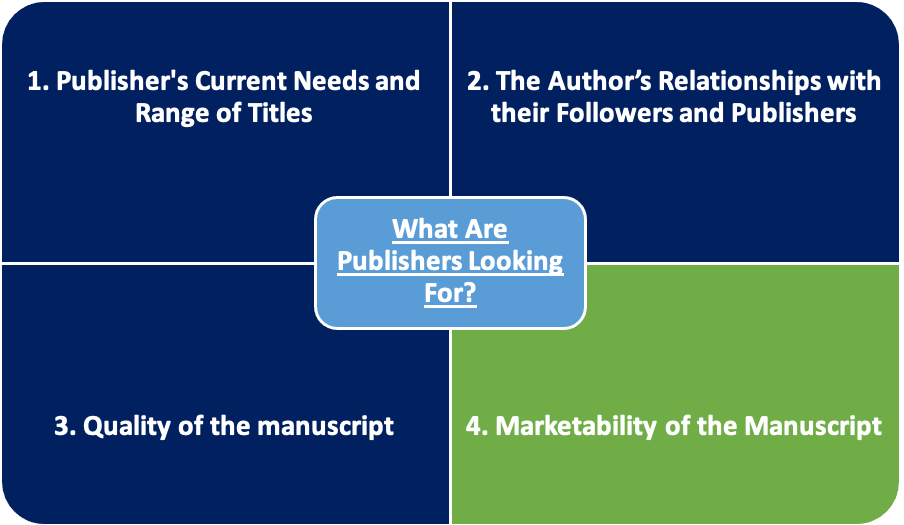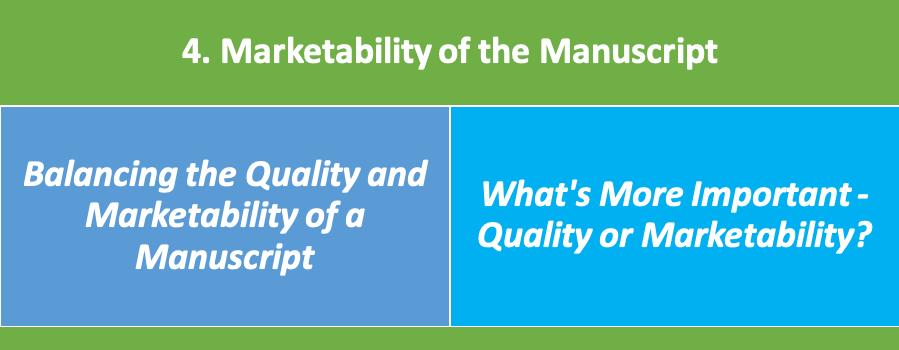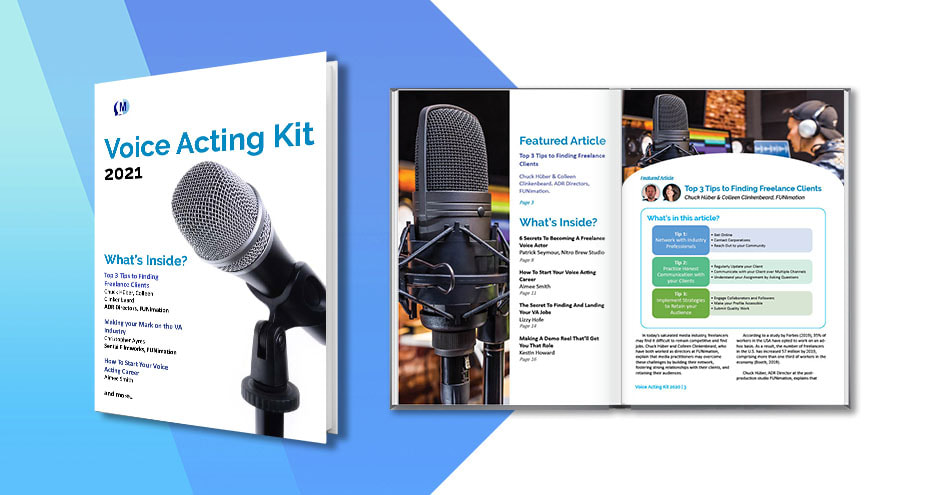|
An author's journey doesn't stop once their manuscript is completed. Once they have finished their story, they face the challenge of searching for publishers who would take a chance on their work.
In order to discover what publishers are looking for, authors should understand the process of producing a book. Nine different independent publishers have revealed insights about their selection process, and their secrets to getting published. What's the selection process like?
Tina Moss, Chief Operating Officer of City Owl Press, divides the selection process into two primary stages:
What are publishers looking for?
Publishers must balance the marketability of their titles with the quality of their books. According to Tina Moss (City Owl Press) a senior editorial team’s decisions are dependent on the following factors:
What's The Selection Process Like?What's in this section?Stage 1 – Query/Pitch is reviewed by an Editor
The process begins with the query or pitch, and if it peaks an editor’s interest, the editor will ask for a partial or full manuscript.
Editors Develop an Opinion by Reading the First Few Pages of a Book "After a submission has been pitched to us and we like the concept, we’ll check out the first 10 pages to get a feel for the writing like most places do, and then ask for the full manuscript if we want to keep going." Galen Surlak-Ramsey, Editor-in-Chief of Tiny Fox Press, explains. Editors create Shortlists for their Books "The editor in charge of the anthology reads all the submissions and creates a shortlist, then sends that to one of our other editors for a fresh perspective. Then we make hard choices to pare down the final table of contents." Sarena Ulibarri, Editor-in-Chief of World Weaver Press, explains. What are a Publisher's Requirements? Gerardeen Santiago, Partner of Aionios Books, states that all submissions must fulfil two primary requirements:
"First, the manuscript must be in young adult science fiction or fantasy genres. I personally review all submissions, searching for that special story, that unique voice, that one that stands out above all the rest. I also look for query letters that show that the author has done targeted research about our company." Gerardeen explains. Personalised Feedback - How Much Attention Does Each Manuscript Get? Kate Gale, Managing Editor of Red Hen Press, states that editors will try to give each submission personalized attention. "We feel that every manuscript submitted to (us) deserves the attention of a member of our paid editorial staff." Kate shares. "At present, I read through every manuscript. The manuscripts I feel are worth considering are then sent to our editorial team and discussed throughout the rest of our departments, including media and marketing. This allows us to bring many different perspectives, viewpoints, and opinions to the table so we can make informed and smart decisions for our books and our future going forward." Kate continues. Athina Paris, Editor-in-Chief of RockHill Publishing LLC, explains how her publishing house aims to provide each author with personalised feedback. "Every story we read gets a detailed evaluation. We help the writer by pointing out their good and bad points. We were new writers once too, and we know how it feels when you get a cold rejection slip. So instead, we send these aspiring writers, positive criticism. We explain what is wrong with the work and give suggestions on how to improve it." She explains. Stage 2 – Partial/Full Manuscript is reviewed by Senior Staff
"After reading, if the editor wants to make an offer, they must send it to our senior staff, which reviews it in an acquisitions meeting. All senior staff must be in agreement to make an offer for publication." Tina Moss (City Owl Press) explains.
"In that final stage we weed out stories that are too similar to each other, or that don’t resonate with the others we’ve chosen. The editor ends up reading the stories numerous times, so we have to absolutely love them!" Sarena (World Weaver Press) shares. What Are Publishers Looking For?What's In This Section?1. Publisher's Current Needs and Range of Titles
Michelle Dotter, Publisher and Editor-in-Chief of Dzanc Books, explains how some publishers may "acquire selectively from a small list" of accepted submissions. In order to filter their list of submissions, Sarena Ulibarri (World Weaver Press) explains how publishers look for books that fit their range of titles.
"We look for quality as well as fit—sometimes a really good story can be heavily edited if the writing isn’t quite polished, and sometimes a beautifully written story just isn’t quite a match for the theme." Sarena explains. Michelle Dotter (Dzanc Books) states that a Publishing Schedule is prepared in advance: "We have most of our 2020 list locked down, but we're still reading and acquiring all the time for future seasons." 2. The Author’s Relationships with their Followers and Publishers
Strong Relationships between Authors and their Followers
Kate Gale (Red Hen Press) praises authors who have built a strong social media presence, and took active steps to market their books. She commends writers who "were game to do anything to promote their books". Strong Relationships between Authors and their Publishers Gerardeen Santiago (Aionios Books) explains how developing strong relationships with their authors is critical in their publishing process. "Because we focus on developing one author, one book at a time, it’s critical that the authors we choose to sign want to work specifically with us. We believe that a strong publisher-author relationship is necessary to the success of our book projects. And so that is what I look for from the start." Gerardeen explains. 3. Quality of the Manuscript
Michelle Dotter (Dzanc Books) also agrees that a well-crafted story is a pivotal factor during the selection process.
"When we do pick something up, it’s always because the book has managed to transcend its individual elements—character, plot, style—and become a new whole, something strong and unique that seems to burn with a vital spark." Michelle shares. Kate Gale (Red Hen Press) defines a "well-crafted" book as:
Furthermore, Athina Paris (Editor-in-Chief, RockHill Publishing LLC) and James Hill (Publisher/Owner, RockHill Publishing LLC) state that the stories they acquire must fulfil three primary requirements:
Strong Structure and Unique Voice Galen Surlak-Ramsey (Tiny Fox Press) shares that a good story "needs to be structured well, have great characters, a plot that works, hit the right expectations for the genre or subgenre, and have a wonderful voice." Furthermore, Bill Campbell, Publisher of Rosarium Publishing, states that a good story possesses a unique voice. "What we're ultimately looking for are quality and unique voices. I am constantly on the lookout for writers and artists who have their own voices. You don't want to be reminded too much of things that are already out in the world." Bill shares. 4. Marketability of the Manuscript
Balancing the Quality and Marketability of a Manuscript
Galen Surlak-Ramsey (Tiny Fox Press) shares about how publishers must balance the quality of a manuscript with its marketability. "First and foremost, the book has to be well written and at the same time, it has to be something that we’re after (this is both in terms of general genres and things we think will sell)." Galen explains. "We do get submissions for genres we don’t take on, and those are auto passes. And then sometimes we like the idea, but when we do our homework, we’re unsure if the market will buy it. And as nice as it would be to publish every great story, in the end, we’re in it to turn a profit." Galen continues. What's More Important - Quality or Marketability? Michelle Dotter (Dzanc Books) also acknowledges that marketability is important. However, she prioritizes the quality of a storyline above its commercial value: "The most important aspect of any acquisition is finding and championing a book that is, on its face, a very well-crafted book. Marketing concerns are secondary." She continues.
VA DirectoryWant to try out for more characters? Leave your demo on our site, and we'll contact you if there's a role you're suited for. Comments are closed.
|

